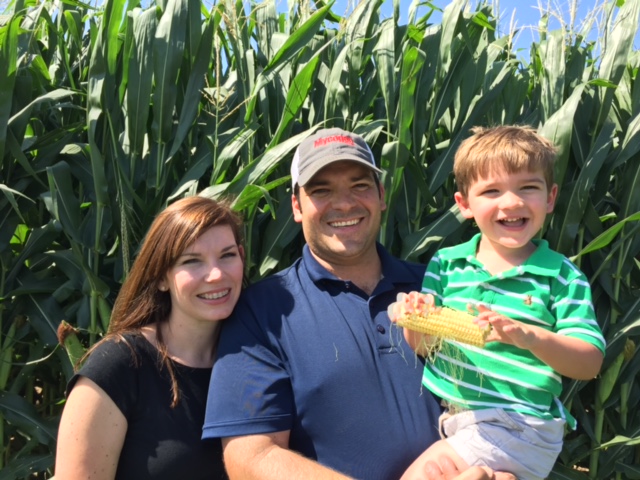Derek Haigwood Embraces Legacy of Farming, Innovation and Sustainability
Derek Haigwood, the U.S. Soybean Export Council’s (USSEC) new chairman, dreams of one day turning over his Arkansas farm to his young sons, Judah and Sam. It’s one reason he’s passionate about conservation and determined to leave his land in an even better place than when it was passed down to him by his father and grandfather before him. USSEC recently caught up with him to ask what compelled him to devote time to serving the USSEC board of directors and what he wanted international buyers to know about U.S. soybean farmers’ commitment to sustainability.
Q: Congratulations on your appointment to USSEC Chairman. Why is international marketing important to you as a U.S. farmer?
A: All of my soy is exported. We want to make sure that when it leaves this farm, it is a high-quality soybean product. We want to produce soybeans that are very consistent and uniform across the board. Some years it’s easy, and some years it’s hard. But we’ll always produce a crop to harvest. That is something our international customers can bet on.
Q: What fueled your commitment to sustainability?
A: I’m reaping the benefits from practices my grandfather put into place and my father put into place in the 1980s. If there’s a new practice in the pipeline, I want to be one of the first to try it. If it works, I want to be an early adopter. What a legacy that would be for me, for my sons to reap the benefits of what their dad did. This land is the greatest resource that I have. Sustainability, to me, is year in and year out producing a high-quality crop, and in the meanwhile, not depleting your resources. Making sure you’re a good steward of the land. Agriculture touches everything. We should ask what we can do to keep the ground as productive as possible and make sure it will be there for the next generation.
Q: What specific sustainable production practices do you use on your farm?
A: We plant cover crops to help with erosion. It puts organic matter back into the soil. It kind of has a blanket over the field that keeps weed pressure down. In the past, after they harvested their crops, farmers would go in with discs and plots and till up the ground, work the plant materials back into the soil. Every pass across the field, you’re losing top soil.
Q: How does technology help you to be even more sustainable?
A: We use technology to show our yields in the fields so we can look at a field that maybe didn’t produce like the rest of the fields did and we can zoom in on that area. We use GPS mapping to grid sample. This means that instead of blanketing the whole field with a micronutrient or a macronutrient we can pinpoint and put exactly what the ground calls for.
Q: You come from a long line of farmers. How does this legacy help you to be a better farmer?
A: My dad and I farm separately, but together. My dad, two uncles and my grandfather are the best resources I could ask for. They know how the land works and they’ve made a lot of mistakes and with that experience they’ve become successful. I’d be a fool not to heed their advice.
Q: What do you hope to get out of your experience as USSEC chairman?
A: For me, success means delivering quality soybeans with high protein and oil content. I want to help international customers easily recognize the U.S. Soy Advantage.

Look for more from Derek throughout the coming year as he serves as the face of U.S. soybean farming for international customers around the globe, helping to show them the reliability, consistency, sustainability and supply of U.S. Soy.
